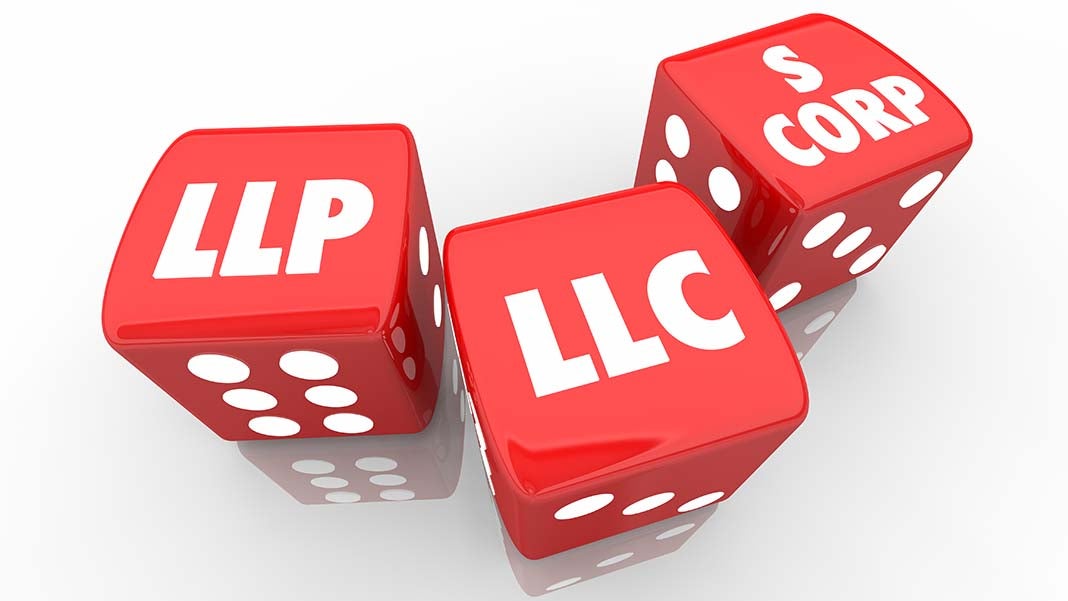
There’s only one letter difference, so how different can they be? When you’re deciding how to choose the right entity for your business, there are a few important acronyms to learn and differentiate.
A Limited liability Company (LLC) is a legal entity under which you operate a business. With an LLC, you pick up the ownership share of your business on your personal return, under your own social security number.
A Limited Liability Partnership (LLP) is a general partnership formed by two or more owners. It can be considered a hybrid of a corporation and partnership and the partners can take advantage of the limited personal liability. Professional businesses are commonly organized as an LLP.
Major Differences Between an LLC and an LLP
It’s important to note the IRS does not see LLCs or LLPs as businesses when it comes to taxation! This means they don’t directly pay income taxes. However, tax documents must be created for the business and sent to the IRS—what your company earns must be reported on the individual owner’s tax forms.
Liability Protection
The main reason for electing an LLC is its limited liability protection. This means that if someone sues the company and you lose the lawsuit, your personal assets are protected and cannot be seized in judgment.
So, if you’re using your personal car for work, the car is still your personal car, just with miles used for your company, and the car cannot be taken, and so forth.
While LLC members are not personally liable for the debts and obligations of the company, this is not the case for sole proprietorships – owners of sole proprietorships are personally liable for all business debts and obligations.
If you’re considering starting an LLC in California, for example, there are a lot of factors to consider. You’ll need to file Articles of Organization with the Secretary of State, and you’ll also need to appoint a registered agent for your LLC.
Here, you can find more information on how to start an LLC in California and other US states explained step-by-step.
Managing Partners in an LLP
There is one significant difference between LLP and LLC; an LLP must have a managing partner that is liable for the partnership. As long as silent partners and investors don’t fund the business, they receive liability protection.
About 40 states allow the formation of an LLP, and the laws vary by state. Some states limit what professions can form an LLP, so check your state statutes. If a law firm was in a state that required the law firm to be an LLP, it would need to be required to be registered as a law firm.
LLC’s with Two Owners
While many LLC’s are operated by a single individual, sometimes there can be two or more owners. If you have another partner who owns half also, then both of you would pick up your 50% of your income or loss on your personal return.
The entity doesn’t pay federal taxes if there is taxable income, but your share of that taxable income gets added to whatever other items of income you would have had on your return. For example, if you had a salary of 80k and your business made 10K, your taxable income would be 90k.
Speaking of Partners…
Only an LLP will provide protection from a partner’s wrongdoing, should that unfortunate situation arise. With an LLC, there’s more widespread protection when it comes to liability external to the company. The liability will be limited, but you will not be fully protected from the actions of the other members, like in an LLP.
In general, LLCs and LLPs combine many of the advantages and disadvantages of partnerships, sole proprietorships, and corporations. Carefully consider the advantages and drawbacks of these two types of business and choose what’s best for your company.












